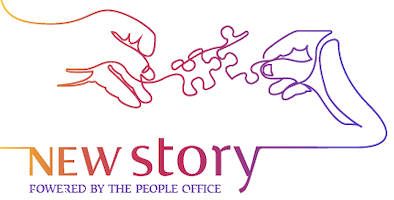In Romania HR is a new job, mostly coming up within the last 20 years or so. For a long while, there were no dedicated university studies in HR and no specialization options were available to someone looking to learn. Currently Romania has around 10.000 HR professionals and this number keeps growing, as compared to the banking industry, which before the 2008 crisis employed around 100.000-120.000 people and now employs around 80.000.
So it is a small community, developed over the last 20 years, with no dedicated faculty and in a business context where often the CEO has no HR experience and is surreptitiously being educated by the HR director. The latter, on top of coordinating the multiple areas of HR, which I will touch upon in this article, finds himself frequently in a position to persuade the CEO that HR is necessary for the proper governance of people and helps him get close to them, understand and support them in all the relevant ways.
HR is that kind of job that people think of as being one job, as sometimes it is thought about IT, even though IT comprises developers, infrastructure specialists, communications, hardware, helpdesk and so many other different specialties. Just the same way HR covers all the diverse activities that we associate as being with people and about people. HR is really a mantle uncovering seven distinct jobs, each one with its own set of required skills: administration, payroll, training, development, recruitment, industrial relations and compensation and benefits.
These 7 jobs can be found in unequal measure in the organizations, following the rule of offer and demand, so in small companies there is only payroll and admin and, as companies grow bigger, the need for experts to manage labor relations or the career path of employees or employer branding arose. The skills needed in most HR jobs are related to communication, empathy, persuasion and collaboration. Traditionally, these are best encountered in the learning and development area, as people in these roles have had more opportunity to practice and improve this particular set of skills.
As we slowly fight our way towards the new normal, we find the context radically altered and we notice a transfer of interest from training and recruitment (who would be now interested in investing in training in class?) towards optimization and restructuring processes and we notice a shift from the need for creativity towards the need for labor law expertise, to help navigate through this environment of uncertainty.
But does that mean that a new set of skills will become relevant? How do we reconcile under the HR mantle creativity and restructuring? Do they complete each other, or do they exclude each other? Although it may not seem obvious, for me the arsenal of HR skills remains largely in the same area but will be put to a different use. Great amounts of empathy and superior communication skills are necessary if one means to successfully implement significant organizational change or a restructuring process.
Just like George Clooney and Anna Kendrick in “Up in the air”, will we witness happy outcomes where the employees will not just be fired, but assisted in finding new paths or drastic implementations such as the recent Bird story?
